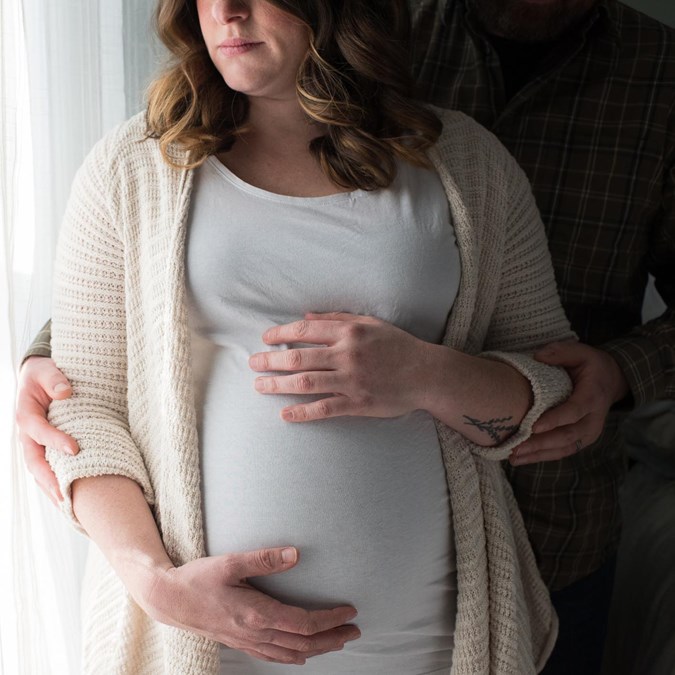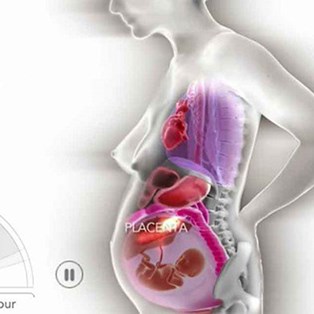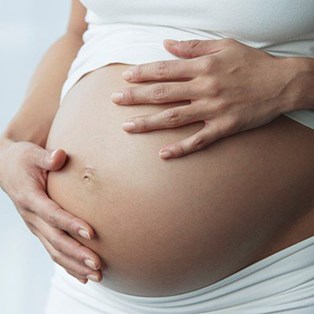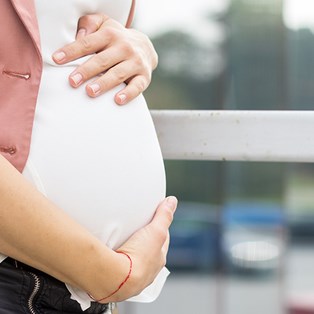Should you bleed in pregnancy?

There's nothing scarier, but before you panic, Dr Ginni Mansberg has some fail-safe words of advice
How common is it to bleed during pregnancy?
About 25% of women have some bleeding during the first 12 weeks of pregnancy - their first trimester. It doesn't automatically signal a miscarriage. You may experience some normal spotting within the first six to 12 days after you conceive as the fertilized egg implants itself in the lining of the uterus.
However, going to the toilet and finding some blood on the toilet paper is a heart stopping moment, especially in your first trimester of pregnancy.
Bleeding in pregnancy is really common, and often it ISN'T a sign you will lose the baby.
Most women who bleed in the first trimester go on to deliver a healthy baby.
Late term bleeding is much less common and the prognosis is more worrying - you should always consult a doctor as soon as you can.
Before we look at the causes, remember you can bleed for reasons unrelated to your pregnancy - like a urinary tract infection or from some trauma to the vulva (from vigorous sex for example).
Let’s go through some of the reasons why you might bleed in pregnancy
In the first trimester the main causes of bleeding are:
- An implantation bleed when the foetus embeds in your uterus - painless and harmless!
- An ectopic pregnancy - where the foetus implants in the tubes, not the uterus. It can come with cramps which are often severe. The pregnancy cannot survive and an operation is needed to remove the foetus. See your doctor immediately if you bleed and have cramps.
- A miscarriage. Often you have stopped ‘feeling pregnant’ and you might have cramps too.
- Subchorionic haematoma. This is the most common finding on an ultrasound done for first trimester bleeding. It is a small collection of blood between the placenta and the uterine wall. Stats show the prognosis for the pregnancy is worse if the hematoma is big, but not if it’s small and they usually are small. The bleeding can recur a few times during the pregnancy.
- A molar pregnancy- an uncommon condition where the embryo doesn’t develop into a foetus but instead becomes a cyst like benign tumour. It has to be removed.

In the second and third trimesters the main causes are
- Late miscarriage - this is rare
- Placental abruption- where the placenta peels away (often partially) from the uterus wall. Comes packaged with pain. This is an emergency and requires immediate medical attention.
- Placenta previa- where the placenta grows low down in the uterus, partially covering the cervix so that as the cervix starts to open, the placenta starts to bleed. We usually have a heads up in the 18 week ultrasound that this is a possibility and it rarely comes as a surprise any more.
The amount of bleeding varies quite a lot depending on the cause. As a rough rule, less is better. If you are getting some blood on the toilet paper early on in your pregnancy, the prognosis is excellent. If there is a flood, whether early or late, you need to get to a doctor as soon as possible.
In my experience, most women who see blood of any description and in any amount, are pretty distressed and don’t need to be convinced to see the doctor or midwife. They will arrange an ultrasound if they are worried and that will tell you what is going on.
For late bleeding, the situation is more serious. You need to have an ultrasound as soon as possible and if there is an abruption, you need to be in hospital.

Dr Ginni Mansberg is a GP, Practical Parenting Expert, author and resident doctor on Channel 7's Sunrise program.
Related tags
bleeding /













